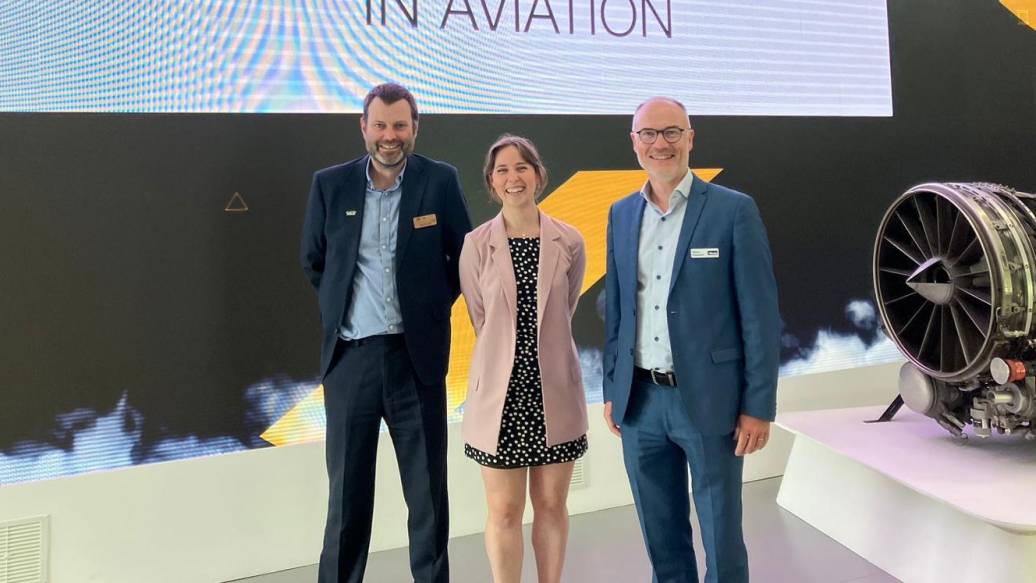
Senior representatives from Marshall, GKN Aerospace and Parker Meggitt gathered today at Farnborough International Airshow, one of the world’s leading aviation technology events, where they met to discuss early progress and the initial milestones of the HyFIVE consortium.
Following the announcement of the consortium’s formation earlier this year, today marked the first joint public appearance by the leadership teams of all three industry partners.
The HyFIVE programme has received initial funding of nearly £40 million, with an investment of £17 million from industry matched with £20 million from government. The programme is supported by the ATI Programme, a partnership between the UK government’s Department for Business and Trade, the Aerospace Technology Institute and Innovate UK.
The overarching objective of the consortium is to develop a world-leading liquid hydrogen fuel system and supply chain supporting zero-emission aviation in the 2030s. The recent signing and approval of a grant offer letter (GOL) from Innovate UK has given the partners the green light to formally commence project activities.
“With its focus on innovation, future flight and sustainability, Farnborough is the perfect backdrop for us to demonstrate how the UK’s industrial and research capabilities can lead the way towards cleaner, greener air travel,
“HyFIVE will take advantage of each industry partner’s unique capabilities, while drawing on support from the UK’s world-leading universities.”
Lucy Skerritt
Aerostructures Director, Marshall
Under the combined leadership of the three industry partners, specialised R&D will be conducted by the University of Manchester, the University of Bath and Cardiff University.
“Taking hydrogen fuel system technology to the next stage requires exceptional collaboration within the industry, combined with insights from leading academics.
“The HyFIVE partnership embodies exactly that, and is part of our larger strategic plan going forward. We believe the collaboration with Marshall and Parker Meggitt provides our path to delivering this breakthrough technology in the UK.”
Max Brown
VP Engineering & Technology - Hydrogen Systems, GKN Aerospace
The consortium members have defined a full technical programme spanning several years, starting with initial architecture development and supplier engagement and running all the way through to ground testing and final design review for an integrated liquid hydrogen fuel system.
"Parker is fully committed to sustainability, which is why we are making focused investments in innovative, next-generation technologies,
"Hydrogen fuel systems play a critical role in achieving zero emissions in aviation and working with our partners on this project will enable us to further advance our expertise in this area and drive the development of innovative solutions that support a more sustainable future."
Tracy Rice
Vice president of technology and innovation, Parker Aerospace
By 2027 the consortium plans to have:
- Developed and validated an integrated family of mature fuel system technologies and capabilities conducive to certification;
- Conducted ground demonstration of an integrated fuel system encompassing the storage, conveyance, indication, venting and fuelling systems;
- Opened a range of flight demonstration and exploitation paths with prospective customers; and
- Positioned a customer-ready supply chain and industrialisation strategy.
Timely achievement of these objectives will support the successful introduction of a new generation of zero emissions aircraft in the 2030s.
Image caption (left to right): Max Brown, GKN Aerospace; Lucy Skerritt, Marshall; Olivier Cazenave, Parker Aerospace